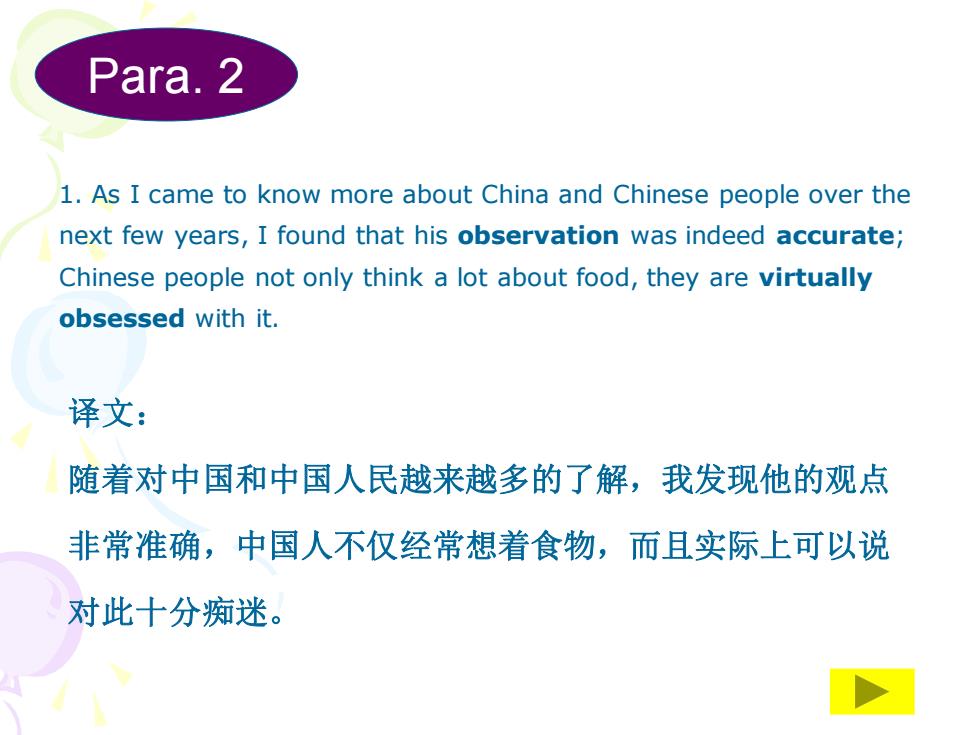
Para.2 1.As I came to know more about China and Chinese people over the next few years,I found that his observation was indeed accurate; Chinese people not only think a lot about food,they are virtually obsessed with it. 译文: 随着对中国和中国人民越来越多的了解,我发现他的观点 非常准确,中国人不仅经常想着食物,而且实际上可以说 对此十分痴迷
1. As I came to know more about China and Chinese people over the next few years, I found that his observation was indeed accurate; Chinese people not only think a lot about food, they are virtually obsessed with it. Para. 2 译文: 随着对中国和中国人民越来越多的了解,我发现他的观点 非常准确,中国人不仅经常想着食物,而且实际上可以说 对此十分痴迷
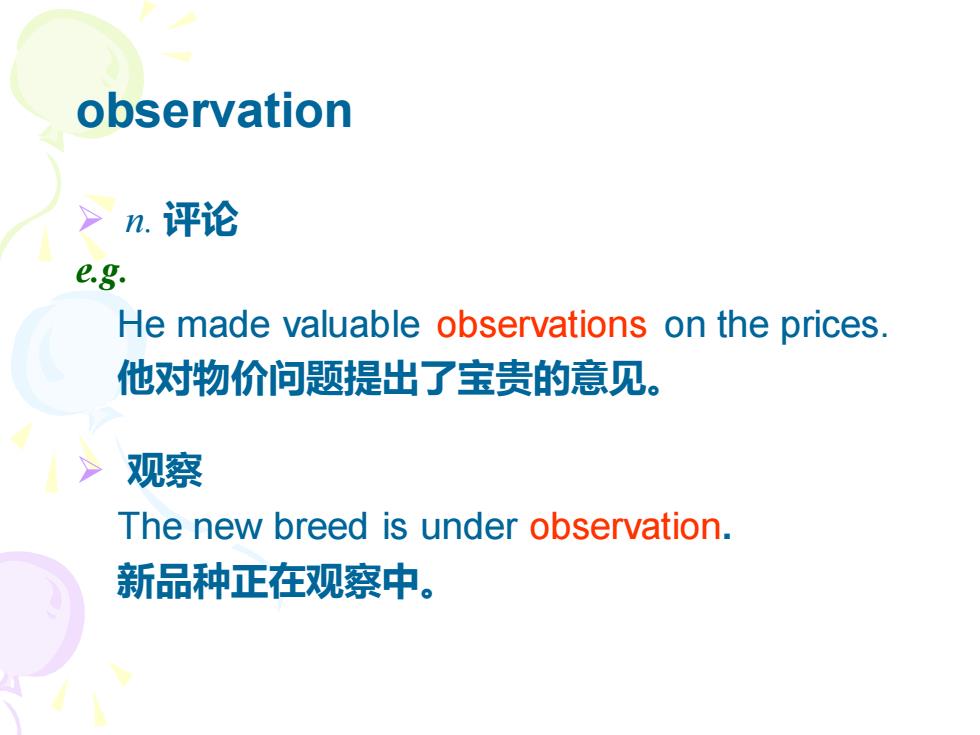
observation >n.评论 e.g. He made valuable observations on the prices 他对物价问题提出了宝贵的意见。 观察 The new breed is under observation. 新品种正在观察中
➢ n. 评论 e.g. He made valuable observations on the prices. 他对物价问题提出了宝贵的意见。 ➢ 观察 The new breed is under observation. 新品种正在观察中。 observation
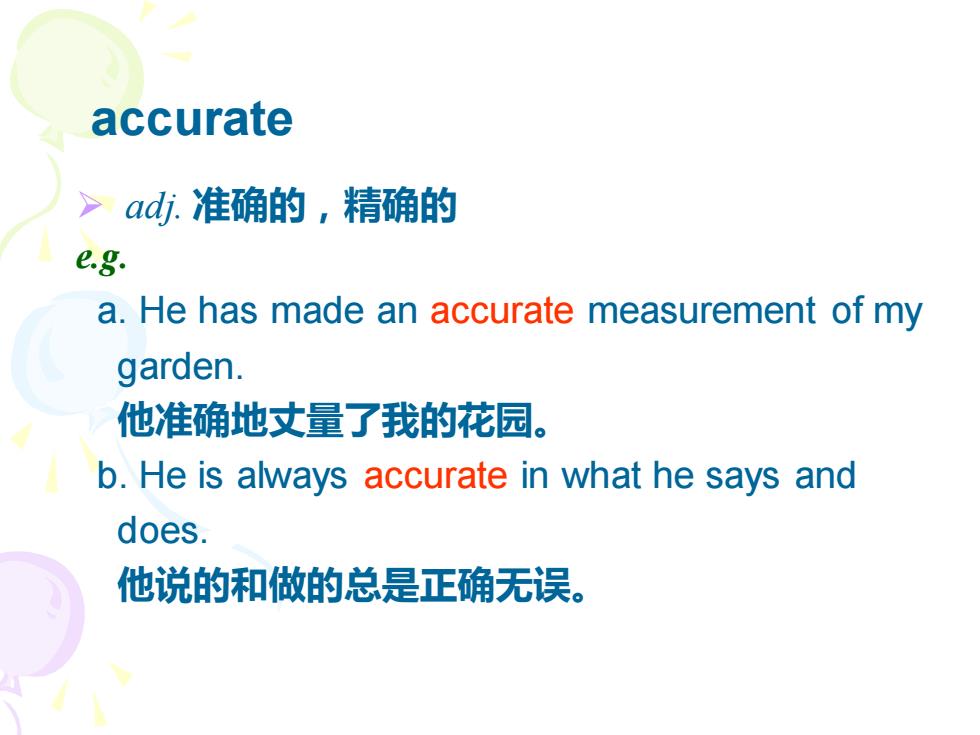
accurate > ad.准确的,精确的 e.g. a.He has made an accurate measurement of my garden. 他准确地丈量了我的花园。 b.He is always accurate in what he says and does. 他说的和做的总是正确无误
➢ adj. 准确的,精确的 e.g. a. He has made an accurate measurement of my garden. 他准确地丈量了我的花园。 b. He is always accurate in what he says and does. 他说的和做的总是正确无误。 accurate
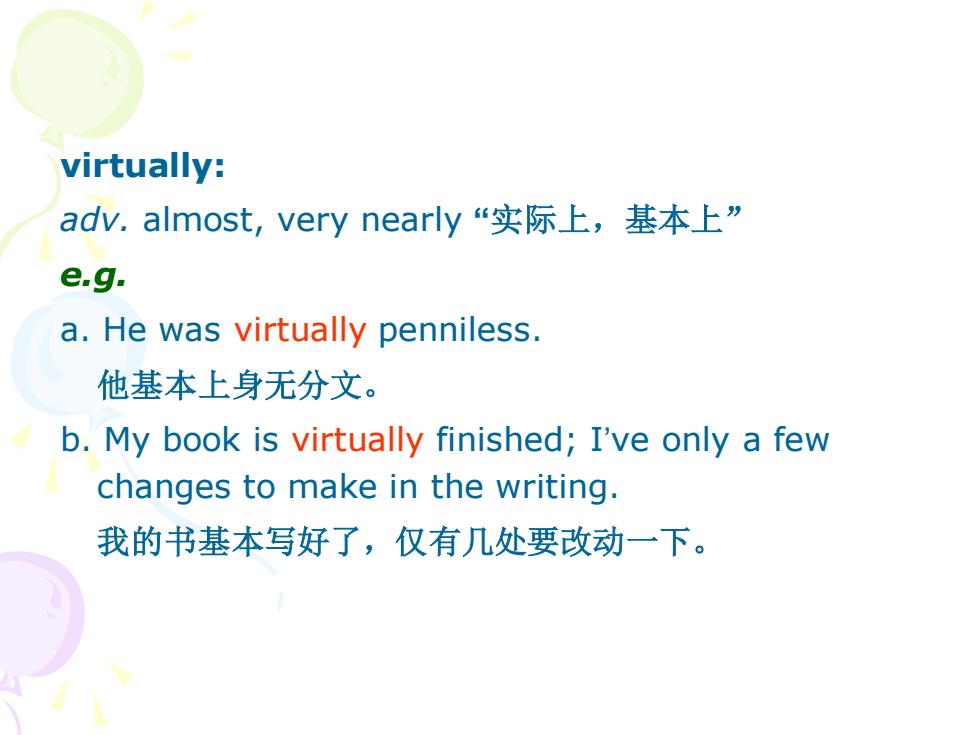
virtually: adv.almost,very nearly“实际上,基本上” e.g. a.He was virtually penniless. 他基本上身无分文。 b.My book is virtually finished;I've only a few changes to make in the writing. 我的书基本写好了,仅有几处要改动一下
virtually: adv. almost, very nearly “实际上,基本上” e.g. a. He was virtually penniless. 他基本上身无分文。 b. My book is virtually finished; I’ve only a few changes to make in the writing. 我的书基本写好了,仅有几处要改动一下

be obsessed with/by:“迷住,困扰” e.g. a.She is obsessed with the desire to become a great scientist. 她一心一意向成为大科学家。 b.She is obsessed by the fear of death. 她为死亡的恐惧所困扰。 Back
be obsessed with/by:“迷住,困扰” e.g. a. She is obsessed with the desire to become a great scientist. 她一心一意向成为大科学家。 b. She is obsessed by the fear of death. 她为死亡的恐惧所困扰。 Back

Para.2 2.The result is that Chinese culture is often characterized as a shi wenhua,"food culture".Chinese people do not kid around when it comes to food. 译文: 因此中国文化经常表现出食文化的特点。中国人对食物 从不草率从事
2. The result is that Chinese culture is often characterized as a shi wenhua, “food culture”. Chinese people do not kid around when it comes to food. Para. 2 译文: 因此中国文化经常表现出食文化的特点。中国人对食物 从不草率从事

be characterized as:“刻画为,描写为;叙述为” e.g. a.The author characterized the central figure as a weak and incompetent person. 作者把故事主人公描绘成一个软弱无能的人。 b.The treaty was characterized as a major breakthrough for Chinese-Russian energy cooperation. 这条约被称为中俄能源合作的一大突破
be characterized as:“刻画为,描写为;叙述为” e.g. a. The author characterized the central figure as a weak and incompetent person. 作者把故事主人公描绘成一个软弱无能的人。 b. The treaty was characterized as a major breakthrough for Chinese-Russian energy cooperation. 这条约被称为中俄能源合作的一大突破
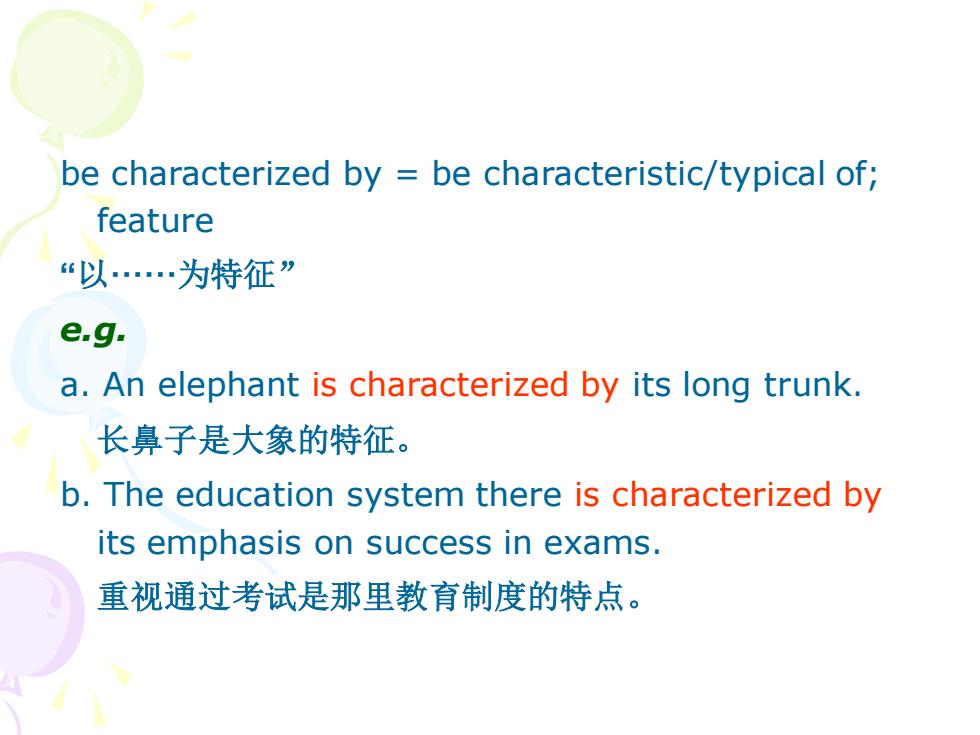
be characterized by be characteristic/typical of; feature “以…为特征” e.g. a.An elephant is characterized by its long trunk. 长鼻子是大象的特征。 b.The education system there is characterized by its emphasis on success in exams. 重视通过考试是那里教育制度的特点
be characterized by = be characteristic/typical of; feature “以······为特征” e.g. a. An elephant is characterized by its long trunk. 长鼻子是大象的特征。 b. The education system there is characterized by its emphasis on success in exams. 重视通过考试是那里教育制度的特点

另两个词typical,feature也可表示“以…为特征”, e.g. a.The painting is fairly typical of his early work. 这幅画是他较为典型的早期作品。 b.Advanced level dialogues feature more complex sentence types. 高级对话是以更多的复合句型为特点的
另两个词typical, feature也可表示“以······为特征” , e.g. a. The painting is fairly typical of his early work. 这幅画是他较为典型的早期作品。 b. Advanced level dialogues feature more complex sentence types. 高级对话是以更多的复合句型为特点的
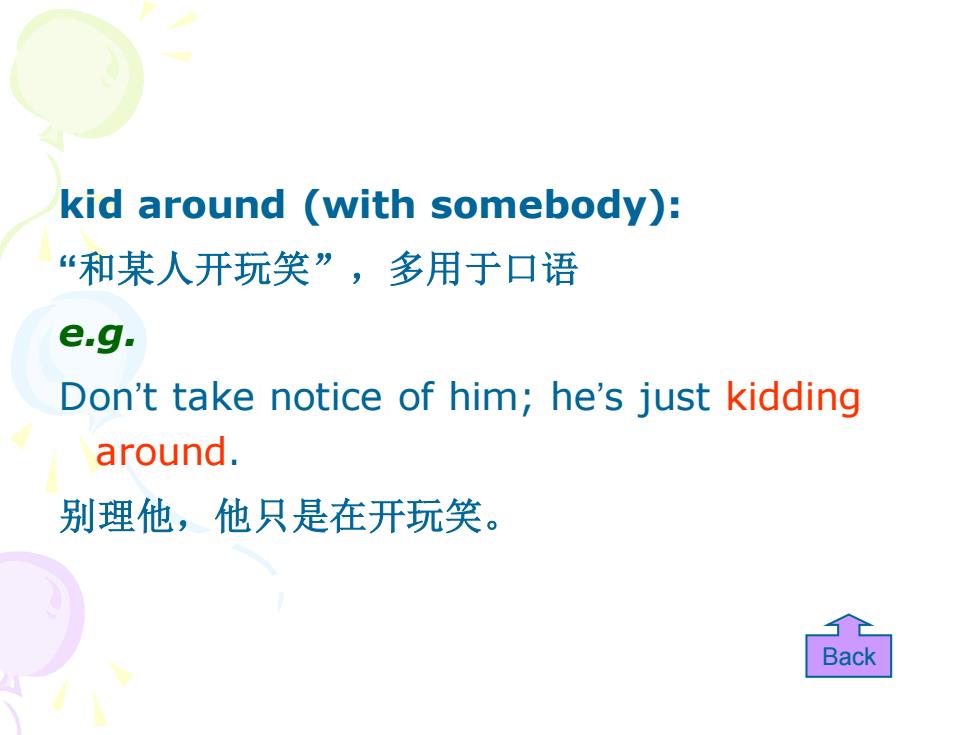
kid around (with somebody): “和某人开玩笑”,多用于口语 e.g. Don't take notice of him;he's just kidding around. 别理他,他只是在开玩笑。 Back
kid around (with somebody): “和某人开玩笑”,多用于口语 e.g. Don’t take notice of him; he’s just kidding around. 别理他,他只是在开玩笑。 Back